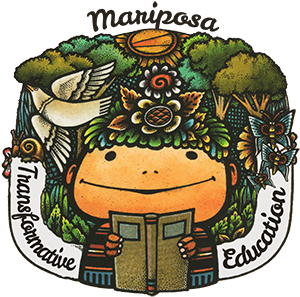Transformative Education, as defined here, seeks the emancipation of the individual as an instrument for social liberation and the attainment of equity, inclusion, justice, and peace.
Transformative Education aims to achieve this emancipation through an education process that relies on the principles of Critical Pedagogy, Social Justice Education, Constructivism, and the strength of the arts. It promotes pedagogical practices geared to developing all aspects of intelligence, and to strengthening critical and reflective abilities through practices that are interactive, creative and joyful.
Transformative pedagogy promotes the creation of loving and caring relationships and environments, and recognizes diversity as essential to life.
Transformative Education fosters respect for all forms of diversity (gender, sexual preferences, culture, ethnicity, and beliefs). It recognizes the prevalence of biases and prejudice and the need to unlearn racist practices and assumptions in order to achieve a just society.
In Alma Flor Ada and F. Isabel Campoy’s interpretation of Transformative Education, a number of fields provide ideas for a comprehensive understanding of its fundamental strengths:
Constructivist Theory
Human beings are beings of knowledge.
To construct new knowledge is to foster the human essence.
Feminist/Womanist Theory
Human beings are beings of love and caring. All human beings have the right to attain their fullest potential.
To foster our ability to love and care for ourselves and others is to foster the human essence. To facilitate that all human beings, regardless of sex or any other differences, achieve their potential is to honor the human spirit.
Aesthetics
Human beings are intrinsically drawn to beauty.
All the artifacts of intact cultures throughout the world are aesthetically produced: whether they are baskets or clay pots, canoes or spears, clothing or canoes, there is a drive to make things that are not merely useful but also beautiful. And all cultures have music, dance, song, poetry.
To foster an aesthetic environment, aesthetic experiences, and creativity is to foster the human essence.
Critical Theory
Human beings are the sole constructors of social reality and as such are responsible for improving it.
Social reality is not a product of nature, but of human beings. As such, it is imperfect and open to change. And we, as human beings, have the responsibility to constantly improve that which we have created.
We have the ability to see what is and what ought to be in order to have a world that is just and equitable, humane and healthy. To live ethically is to engage in the conscious transformation of our reality in a search for equity, inclusion, justice, and peace.
For the human race, going to the Moon is technologically harder than stopping social evils. The fact that some social evils –like war, conquest, colonization, slavery, hate crimes and poverty —have been prevalent for long periods in many parts of the world does not justify them or mean they must exist. We did not let the fact that we do not have wings, or that most human beings in history never had the opportunity to fly, mean we could not fly, or prevent us from doing it.
Multiculturalism
The nature of Earth is diversity. Human beings are as diverse as the reality of this planet.
In this planet, there is not a tree, but many kinds of trees; not a flower, but an enormous variety of flowers, not an insect but an extraordinary number of kinds of insects.
We all need to learn to think in terms of diversity. There is no norm, we are all unique. Only by recognizing, understanding, respecting, and celebrating diversity will we be able to create equity, inclusion, justice, and peace.
Anti-Bias Education
Prejudice and bias have been prevalent throughout human history. Most cultures are ethnocentric and promote seeing others as less than themselves and/or dangerous. The majority of people don’t see their own biases. Biases are destructive, and when they become institutionalized they bring about injustice and even crime against other human beings.
To be human we must unlearn prejudice and biases and become each other’s allies.
Critical Pedagogy
Most forms of public education, anywhere in the world, promote the domestication and colonization of the human mind in order to maintain the status quo.
Most of the time there is a discrepancy between the stated goals of schools – and the goals individual teachers believe they are fulfilling – and the real structures behind schools.
To denounce these discrepancies is the first step toward eradicating them.
Bilingual Education
Language is one of the strongest elements of self-definition as well as one of the most significant elements of a culture.
Identification with the mother tongue begins before birth. When children are made to feel ashamed of their home language they are by as association ade to feel ashamed of their parents, community, culture, and of themselves.
